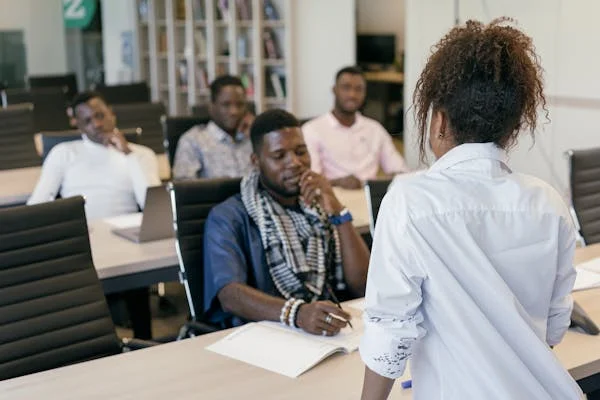Imagine a team where the opinion of every member matters, and they all collaborate to achieve a common goal. This dream can come true for any team if the leaders master facilitation skills. These skills are the rare glue that keeps team members together despite their dissenting opinions and unique ideas.
Facilitation is not about being in charge or controlling every aspect of the team; it involves creating a level ground for the team members to contribute. Every team member gets a space to share their thoughts and engage their innovation to solve everyday challenges. This article will highlight reasons why facilitation skills are important for establishing effective teams.
Collective Decision Making
Large teams, especially in business settings, have to make tough decisions, which could lead to success or failure. A facilitator can present all the facts to the team members and encourage them to weigh the options available and share their opinions. This explains why Agile Team Facilitation training is crucial for team leaders. These skills help the facilitator encourage the team members to share their perspectives, insights, and views for consideration.
When all the opinions are on the table, the members weigh each one, eliminating impractical ones, to narrow down the options. The analysis stage involves examining potential outcomes, benefits, risks, costs, and anything in between.
The collaborative efforts help teams make informed decisions without overlooking potential adverse outcomes or risks. This often leads to better decisions and allows the members to adjust their expectations since they understand the pros and cons of their decisions.
Peaceful Conflict Resolution
Teams are likely to disagree and engage in small fights due to personal interests. Some team members will sometimes approach a project from a different angle, making others uncomfortable or angry. When this happens, facilitation skills can help the members understand and continue supporting each other.
The facilitator encourages the disagreeing members to air their views with the opposing opinions in mind. Through effective communication, active listening, and respective dialogue, the members express their emotions and concerns while opposing parties listen.
The facilitator then guides the teams toward a common ground or respectively guides the members at fault. Therefore, facilitation skills foster reconciliation and prevent conflicts from escalating or breaking the team.
Inclusive Innovation and Brainstorming
Teams thrive by engaging their creativity and innovation to develop new solutions. Since each team member has a unique thought process, facilitation skills can help teams tap into each other’s innovative minds. The magic happens when the members brainstorm to build better systems and solutions to achieve success.
The facilitator can use visual tools such as charts, maps, diagrams, and explanations to ensure team members understand where they are and what they want to achieve. Then, each member will use their creativity and innovation to develop and share practical strategies to attain the collective goal.
Leadership Development
Leaders need facilitation skills to keep teams together and enjoy long-term success. Facilitation skills also help team leaders identify other leaders and assign them important roles to build their skills.
Besides, all the members improve their communication skills, build presentation skills, become more confident, and enhance their capacity. This could lead to more leadership opportunities and career development.
Facilitation is crucial for effective teams, especially in professional settings. They help resolve conflicts, make sound decisions, brainstorm, and build leadership skills. Therefore, business owners who want to create effective teams should enroll team members in facilitation training to enjoy these benefits.





